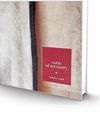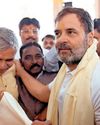
World War II stopped Dr Homi J. Bhabha, the father of India’s nuclear programme, from returning to the UK and continuing his research there. So he stayed back in India and that became a turning point for Indian science, especially atomic energy. Though perhaps it was a golden era of Indian science, going by the pathbreaking contributions by the likes of C.V. Raman, S.N. Bose, Meghnad Saha, J.C. Bose and others, it was Bhabha, a cosmic ray physicist, who ushered in an era of mission mode programmes. He used his proximity with the Tata family and prime minister Jawaharlal Nehru to create an India-specific vision in atomic energy, space and electronics.
That was also the time when the development of nuclear weapons and a new geopolitics seemed to emerge. Bhabha ensured that the political leadership appreciated the ramifications of this emerging development from an Indian perspective, fully cognisant of the potential strengths of Indian scientific community. He did not want them to simply drift with the rest of the world.
While developments in China at that time did spark a debate on policy options for India, it was really the Bangladesh war that triggered the peaceful nuclear explosion experiment in May 1974. Underground nuclear explosions for peaceful applications were being pursued by some countries and discussed in conferences at the International Atomic Energy Agency. After India’s Peaceful Nuclear Explosion (PNE), however, the term and the related programmes disappeared from the scene. India came under an intense technology denial regime. The Americans discontinued the contracted fuel supplies to Tarapur, while the Canadians withdrew from the collaborative programme to build two PHWR (pressurised heavy-water reactor) units in Rajasthan.
Denne historien er fra June 09, 2024-utgaven av THE WEEK India.
Start din 7-dagers gratis prøveperiode på Magzter GOLD for å få tilgang til tusenvis av utvalgte premiumhistorier og 9000+ magasiner og aviser.
Allerede abonnent ? Logg på
Denne historien er fra June 09, 2024-utgaven av THE WEEK India.
Start din 7-dagers gratis prøveperiode på Magzter GOLD for å få tilgang til tusenvis av utvalgte premiumhistorier og 9000+ magasiner og aviser.
Allerede abonnent? Logg på

Use multi-asset investing to overcome portfolio volatility
EQUITY MARKETS have been choppy during this year. After rallying for the better part of the first nine months of 2024, equities corrected sharply in October and November, before taking off once again on rally mode in December.

Twist of faith
Upamanyu Chatterjee is back with his wry sense of humour in his new novel, and most of it is directed at religion and spirituality

THE GLORY OF SARI
Saris of Memory weaves together history and textiles, highlighting key moments from the author's collection

We win together
We invented chess, which was pretty cool of us. The original game 'chaturanga'that is four divisions (infantry, cavalry, elephantry and chariotry)-was a war strategy game. When the game travelled to the Middle East, they mangled the Sanskrit and it ended up being called 'shatranj' instead.

BEATS THAT HEAL
Music ignites the light within us, says Grammy-winner Chandrika Tandon

Older, smarter, sexier
Those who worship him regardless of where he works have continued to do so. Such is the power of Alessandro Michele, that after being the face of some mega brands for 10 years (namely Gucci and now Valentino), he remains bigger than the labels themselves. His debut collection for Valentino was presented at the recent Paris Haute Couture Week, and it has been adored by his adorers.

The road to peace
Future political dialogues should explore means of ensuring a more robust autonomy to tribal communities

Diary of a Sherpa
Amitabh Kant's new book is a comprehensive account of the G20 Summit held in Delhi in 2023

The annoying orange
Everything is great. All is sunshine. I am an eternal optimist.\" It's the fad of our TikTok times everything is not great, the sun sets daily, nothing is eternal. If anything, everything is ephemeral, night brings darkness, and optimism often crumbles under the weight of history. British philosopher Roger Scruton warned: \"Hope untempered by the evidence of history is a dangerous asset, one that threatens not only those who embrace it, but all those within range of their illusions.\"

NO SEAT, YET UPBEAT
The Congress is buoyed by its increased vote share in Delhi, and feels it can push the AAP into further decline